RightBigToe (talk | contribs) (deleted the "Templates" section as it was just a placeholder, and organization pages are not allowed on this wiki.) Tag: Visual edit |
@DeletedUser41299283 (talk | contribs) m (link to FR domain) |
||
| Line 36: | Line 36: | ||
[https://devblog.dualthegame.com/2015/03/20/organizations-build-your-corporation-faction-nation-or-empire/#more-437 Organizations Dev Blog] |
[https://devblog.dualthegame.com/2015/03/20/organizations-build-your-corporation-faction-nation-or-empire/#more-437 Organizations Dev Blog] |
||
[[Category:Player]] |
[[Category:Player]] |
||
| + | [[FR:Organisations]] |
||
Revision as of 17:07, 21 May 2018
Disclaimer: All of the information in this article is subject to change. The Organization Management system has not yet been finalized, and will likely change significantly prior to launch. Furthermore, very few details have been given on the system, so much of the content on this page is conjecture based off what little information has been give to the players thus far. This page will be updated as more information becomes available to the players.
Organizations are the Dual Universe equivalent of guilds or corporations in other MMOs. Players are free to join any number of organizations (with the approval of the organization's leadership), and organizations are likewise free to become affiliates of other organizations. Unlike other games, the organization mechanism in Dual Universe is extraordinarily simple and flexible in the sense that it does not force the player into a specific type of group management, and it isn't governed by highly restrictive and arbitrary rules. As a result, players are given the opportunity to form diverse organizational structures, from a loose pirate gang to a full-fledged space empire.
Organizations can have two different types of members: Character Members and Affiliate Organizations
Character Members
Character Membership in Dual Universe is very similar to the guild membership system in almost every other MMO: Player characters may join an organization, which allows them to be given various rights and duties associated with that organization, and gives them access to any number of benefits specific to that organization. For example, joining an organization may give the player access to that groups constructs, community resources, resurrection nodes, and/or territory.
Organization members are split into two basic categories: Members and Legates.
Legates are the shareholders of an organization, with each having relative power determined by their number of Shares (More on that later), are they generally act as the owners and administrators of the organization. Individual legates may have all the rights and powers available for managing an organization (such as the ability to accept applications, kick members, assign roles, access wallets, and so on), or they might have none of those roles. However, all legates have voting power as dictated by their number of shares. While the individual powers of organizational leadership may be given to a non-legate-member, that member would not officially be a legate unless they owned shares.
Members are only different from legates in that they do not possess shares, and therefore cannot officially vote. Members have no default powers or access within their organization, unless that access is available to everyone or they are directly given rights by a member with the power to do so.
Unrestricted Membership
Players are free to join and become legates in as many organizations as they please, and they may remain legates in an organization even after they leave it. In order to lose legate status, the title must be removed by a legate with a greater number of shares.
A "Share" is a digital representation of the owner's ability to vote on inter-organizational matters, with one share representing one vote. When an organization is created, the creator is given a set number of shares for that organization, which he or she can then distribute to legates in whatever way he or she so desires. This gives those members voting rights, which they can use to influence organizational decisions. Some actions, such as removing a legate or creating more shares, will require a vote, with the decision going to the side with the most votes. As a result, in an organization with only one shareholder, that person would have complete power over voting-decisions.
This system of share-ownership allows for a wide variety of ownership/leadership-systems. For example, in a dictatorship one player (the dictator) would own all of the shares and be the only legate, whereas in a direct democracy or collective, all members would be legates with equal shares.
A more complicated example would be that of a indirect democracy, where each member is still assigned one share or vote, but for administrative purposes, they delegate this power to a small congress of legates to make decisions and provide leadership for the group as whole. This system of delegation of power appears to allow for both temporary and permanent delegation of a legate's voting power.
Affiliate Organizations
An Affiliate Organization is an organizations that has become a member of another organization, in much the same way a character would do so. This process is exactly like that of a regular member, except that the rights and permissions assigned to the affiliate organization are automatically distributed to every member of that organization. Individual members of affiliate organizations can also be granted individual rights and permissions, as well as legate status, which allows multiple organizations to easily combine into an umbrella organization with joint leadership and management.
As a result, multiple organizations can be combined and assimilated with each other easily and without disrupting each other's internal leadership structure.
For more information, see the Political Mechanics page.
References
Unless otherwise noted, all information from:
